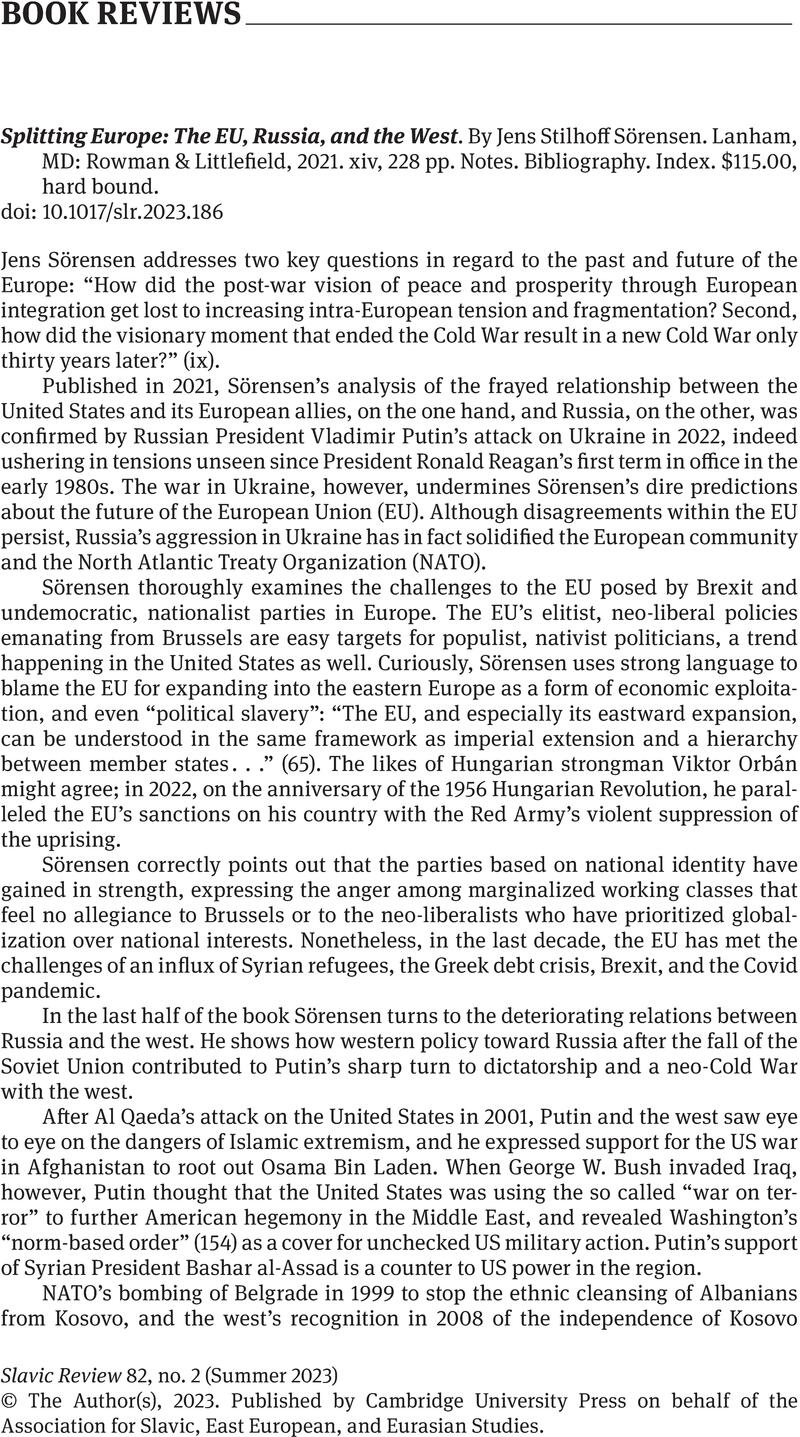No CrossRef data available.
Article contents
Splitting Europe: The EU, Russia, and the West. By Jens Stilhoff Sörensen. Lanham, MD: Rowman & Littlefield, 2021. xiv, 228 pp. Notes. Bibliography. Index. $115.00, hard bound.
Review products
Splitting Europe: The EU, Russia, and the West. By Jens Stilhoff Sörensen. Lanham, MD: Rowman & Littlefield, 2021. xiv, 228 pp. Notes. Bibliography. Index. $115.00, hard bound.
Published online by Cambridge University Press: 01 November 2023
Abstract
An abstract is not available for this content so a preview has been provided. Please use the Get access link above for information on how to access this content.

- Type
- Book Review
- Information
- Copyright
- Copyright © The Author(s), 2023. Published by Cambridge University Press on behalf of the Association for Slavic, East European, and Eurasian Studies


